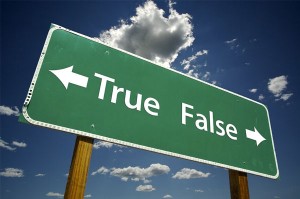If you’ve been here before, you know I love to myth bust. If you bring up “calories in versus calories out” or sound giddy about a “fat free” product, we’re going to have a chat. However, what drives me (and weight conscious people everywhere) crazy is when one expert or study comes out saying “sugar is good” or “exercise is useless” or some other sweeping conclusion that puts common sense health information on its head. While I read through many nutrition research studies each day, I know the difference between research and reality.
This point hit home a while back when I did a GMA segment in which a few experts were asked for comments. The topic was a popular fad diet and I went straight to the research and blasted it. Dr Oz was asked his opinion and said something to the effect of- if something is working for a large number of people we have to pay attention to that (even if we don’t know why). This stuck with me and when I read the lastest study, I also hold them up and compare to what I have learned from my clients.
This week, the New York Times printed a story questioning whether breakfast eating is beneficial for weight loss. Dr Allison, a researcher out of Birmingham, found fault with the studies used to make this claim. He then dismisses The National Weight Control Registry which is widely respected and cited because over 10,000 participants have not just lost over 30 pounds each but kept it off. His feeling was that conclusions from this group aren’t causal or based on studies. First, I’ll point out that 80 percent of National Weight Control registry members eat breakfast. Second, having been in obesity research, I will add that being a “study participant” isn’t without its glitches in terms of accuracy.
I’ve been counseling for 15 years and seen thousands of clients, here are some breakfast tips the article excluded:
- It depends what we eat for breakfast. As I mentioned Monday (in the interview with Food Matters) if it’s a sugar or grain fest it may not be beneficial for your weight or your health. Higher protein breakfasts decrease ghrelin levels (the hunger hormone) while high carb breakfasts can do the opposite.
- The article didn’t address the “when” question. You don’t have to eat breakfast the second you wake up at 5, 6 or 7am. However, your blood sugar is lower after a night of sleep and it will continue to drop. Have something within a couple of hours. I’ve also written about a period of fasting overnight, aim for 12 hours food free between your last bite at night and breakfast.
- The piece also ignored the behavioral side of meal selections. Skipping breakfast feeds in to the “saving up” syndrome; I promise what is consumed mid afternoon or after dinner carries more risk than that smoothie ever will.
- With regard to eating and exercise, you don’t have to eat pre working out and if it doesn’t leave you feeling poorly exercising on empty may be beneficial for your weight. Just be sure you eat ASAP after your workout.
Tricia provided great breakfast options in Monday’s post. I’ve written about smoothies, chia pudding and yogurt which all make appropriate breakfast choices. Breakfast, to me, is not the most important meal of the day. It doesn’t have to be large and shouldn’t be overly grainy but if you eat breakfast the right way weight loss will come your way.
Do you skip breakfast? How would you say you feel on days you have versus skip that first meal? Do you change your eating based on a research study?


